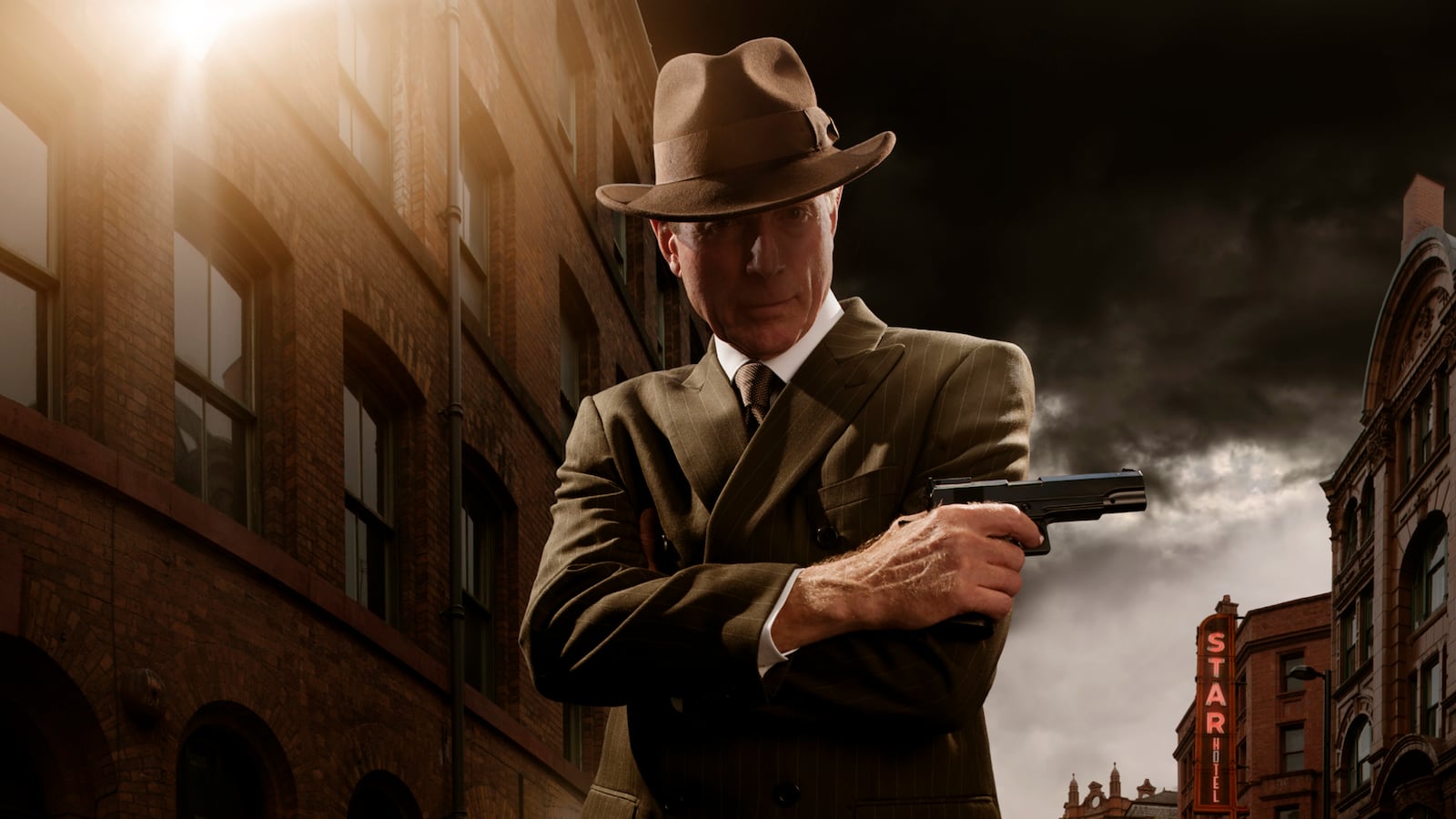Editor’s Note: The following conversation has been excerpted from the playwright John Hadden’s Conversations with a Masked Man: My Father, the CIA, and Me, published by Arcade Publishing, an imprint of Skyhorse Publishing. In the book, Hadden interviews his father about the latter’s long career in the CIA, the intricacies and follies of espionage, and dramatic decisions that altered the fate of the Cold War. In this excerpt, Hadden and his father discuss the precarious task of how a CIA officer cultivates informants and runs secret agents.
***
Son: Spy technique in Israel was a slightly different ball game than in Europe, yes? You say you just talked to people.
Father: No, it was pretty much the same. People would tell me things. By talking to everybody, see, soldiers, businessmen, judges, archeologists and farmers and opera singers and everybody, they couldn’t tell who was talking to me and who wasn’t.
Son: So having a formal arrangement is a vulnerable …
Father: It’s not important and very often stupid and counterproductive.
Son: Then how do you get them to talk?
Father: People always want to talk. A person will be most likely to talk if he’s somebody who hasn’t been properly appreciated—the best people are often left behind because they make people uncomfortable, they’re too smart for their own good. Then he really needs somebody to talk to, somebody who’ll understand how good he is.
Son: So you used friendship to get what you wanted.
Father: I was very friendly, yeah. I would agree with anything anybody said. And when you deal with two people you learn something from one that you can tell the other, that he didn’t know, so then the other thinks you know more than you really do, and then he tells you things, and then—well, it’s like a Ping-Pong game.
Son: But there comes a point where you’re close to a mother lode of information and they have access to it … Then what do you do?
Father: Well, then you have to wait. I did finally recruit somebody … and, ah, yeah. It worked, it was …Yeah. It was the best thing I ever did. I got … [CIA director Richard] Helms liked it so much he took it to the president and …That was one thing, that was my one real … good one, yeah.
Son: And was your personal relationship different with this guy?
Father: I winkled him out and then I had somebody else dealing with him, under my control.
Son: So you stayed in the background.
Father: Oh yeah, Christ, I couldn’t have the Israelis knowing that I was doing things like that.
Son: So he went to other people and they passed it on to you.
Father: I only dealt with third parties.
Son: Were these third parties in danger?
Father: Not that they knew it, no. In Hamburg, all I did was …
Son: But you knew it.
Father: Well, that was what I was there for. In Hamburg all I did was talk to people.
Son: Did you know any of them well? Did you get into their lives, and …
Father: I would see them all the time.
Son: You must have gotten to know about their families, their sex lives …
Father: I suppose. Your mind sifts that stuff out very quickly.
Son: For them to have somebody to talk to …
Father: Especially if they think you’re friendly and if they think you agree with them anyway … so that you don’t have to be convinced of anything. Once you get into an argument with somebody, then you don’t learn anything. Then it’s gone.
Son: In order to be convincing, you have to become really interested in them …
Father: Yeah, you keep nodding your head …
Son: And then you bring them a book that you think they might like …
Father: Oh, gifts are the sine qua non.
Son: You have to give the right gift.
Father: You have to figure it out. I used to spend a couple of days at the Savile Book Shop in Washington, before Christmas, picking out a book for each one of these birds. There was an endless list.
Son: And you have to know the culture, the language.
Father: That helps. There was a guy in Israel named Karmon, who told his people never to speak Hebrew in front of me. I couldn’t speak enough Hebrew to get out of a paper bag, but he thought I was faking it. We went to a dinner party one night and I was sitting across from him, and there were two Israeli ladies sitting at our little card table, because that was kind of dinner party it was. Halfway through this meal one of the ladies said to Karmon in Hebrew, “Pour this guy a lot of wine, maybe he’ll tell you some secrets.” Of course they all knew who I was. And I picked up the only word I distinguished in all of that, yayin, the word for wine. For some reason I had learned a phrase from my two guys, my cartoon interpreters, which was “Nichnas yayin, yatzeh sod.” Which meant, ‘in goes the wine, out pops the secret.’ And Karmon turned white, because of course he thought I’d understood everything they’d said, and of course I hadn’t understood a thing. [laughs]
Mother: He was a good friend. He stopped to see us here.
Father: He was, he was a wonderful man. It would be people like that I would talk to. He was in a position where he didn’t have to worry what he said to me. They left it up to him as to what he would tell me. It was up to me to listen.
Son: And would you feed stuff back to him, to make it worthwhile for him?
Father: I would try. Intelligence is a kind of currency and you have to spend it. There’s no point in keeping it locked up in a safe. You lead a little bit and you take a little bit, you win some and you lose some. My young friend Shlomo Argov had gotten a pretty good post in Washington, when I was head of section. He had become a senior officer when [Israeli Prime Minister Yitzhak] Rabin was ambassador there. So we made a deal. I said, ‘I’ll get my guys and you get your guys, and that’ll give me the cachet to set the whole thing up, and we’ll go to Gettysburg and we’ll both see it like we’ve never seen it before, and maybe we’ll have fun. I think Rabin will enjoy it too, because he has a big interest in the Civil War.’
So out at Gettysburg, we were met by three limousines with drivers, and each one had a guide that would take us all around the valley and the battlefield. Then we had a super lunch, and then they took us to the museum—it went on and on. It was an all-day tour of Gettysburg. I was with Rabin most of the time and I knew enough about the subject so I could tell Rabin what was right and wrong about what the guy said. We had a great time. That’s how you get things done, indirectly. Having fun loosens people up.
Son: Outside, as you said, away from offices and people listening …
Father: That’s right. Then we gave a party for Rabin. I’d invited the [Director of Central Intelligence] DCI and of course [CIA counterintelligence chief James] Angleton was there, and all the Mossad guys were there, and Mr. and Mrs. Rabin and all the wives. I hired a steamboat that went up and down the Potomac doing parties, and we spent all afternoon into the evening, of a summer’s day. And that was another nice way to get to know people.
Son: When you say friendliness, you’re not talking about real friendship, are you?
Father: Intelligence agents have no friends. It’s like international affairs. Nations have no friends. They have relationships. Sometimes they’re close, and then? Then things change. But that’s the thing about espionage, and especially liaison, you have to be on their side, you have to speak their language, you have to see their whole way of looking at things, and address yourself to that, and take it on as your own. At the same time there has to be a little corner of your head that remains loyal to the United States— and it’s not entirely easy. People who don’t know where the line is go overboard. We had an ambassador in Israel, when we came there, who was an Israeli as far as that was concerned—worked for them. There were people who couldn’t do liaison work; there was always the tension they felt because they were working against these people, and they couldn’t get into bed with them. It required a certain … a certain touch.
Son: You seemed to like people more overseas than at home. Why is that?
Father: I never got along with Americans at all. Ever. I expected too much from Americans, and coming from West Point, when I was in charge I thought people ought to do what I told them to do. But Americans don’t like to be told what to do. Foreigners, on the other hand, don’t know any better and I was much more tolerant, so I could put up with anything as far as foreigners were concerned. I was never in charge, either; I was never in a position of total control. So.
Son: You’d also made yourself see things from their point of view.
Father: You have to get into bed with them, and be one of them. Yeah.
Son: Meanwhile you would get these orders from Washington.
Father: Yes. What the hell. For instance, Bobby Kennedy was always after us to kill [Cuban leader Fidel] Castro. So we thought up these dumb ideas to kill Castro. You do what you’re told. Or you get out.
Son: You said before that Americans don’t like to do what they’re told; would you include yourself in that?
Father: No, because I was a soldier, I always did what I was told. When it was obvious that I knew more than the person telling me what to do, and it was going to be a disaster if I did what I was told to do, then I deliberately disobeyed orders, but you can do that only just so often. But any bureaucrat with a drop of conscience has to disobey orders from time to time. In any case I did, and I was damn lucky not to get caught. But the point is that this is how “political action” began. It was with these cowboys who thought bombing and assassinations were the way to get things done. For one thing, presidents demand it. Diplomacy takes too long, and they can’t always go to war, so they need something in between, something they can deny if it comes up. These puerile shenanigans, which have taken over the CIA, have caused us nothing but grief and harm, and they have nothing to do with espionage. They damage our intelligence. In more ways than one.
Son: You said before that you didn’t consider yourself a successful intelligence officer. How would you define a success?
Father: Secrecy was tops. Cool judgment. He had to be an intellectual to think of all the possible combinations and yet, active enough to take huge risks. I was never willing to take risks of any sort, really. So I didn’t. But you can go overboard. My God, there was one officer we had who was so scared that he might say something that he kept himself locked in a safe in his office and was never able to function. I looked upon information as cards in your hand, and the trick was to play the information cards to get the maximum exchange in return, and of course, like any poker game, sometimes you don’t win and you get less back than you gave, and sometimes you get more back, in which case you congratulate yourself—but information is like money in a bank. It’s for a purpose. Stuffing your money in a mattress is a dumb way to handle money. A dumb way to handle information is never to use it. You can’t use it all at once because then you don’t have anything. You just have to use a little bit, a little at a time.
Information by itself is meaningless. A pile of facts is just raw material. It’s not a piece of work until you carve it into something. Otherwise it’s just a piece of wood that you might toss into the fire. Until you’ve done something with it, until you’ve worked it, it hasn’t done anything. And words are like that. What good are words until you’ve put them together in some understandable fashion so that you can communicate an idea? The words themselves are nothing. It’s only when you string them together in an interesting way that something happens.
Son: And facts are never isolated; they are attached to people. What about them?
Father: People? Which people?
Son: The people you work with, who take such huge risks with their lives, and with the lives of their families …
Father: All on your behalf.
Son: …on your behalf.
Father: Of course you pay them, and try to help them in every possible way, but it’s like a company commander in combat, or a platoon leader—follow me!
Son: Did you have to keep your own feelings in the background, or remind yourself that they were not your friends?
Father: I never thought in those terms, you just …
Son: … got involved?
Father: … do the best you can. I never analyzed these things at the time. I don’t think that’d be a good idea.
Son: You have to gauge the risk to the person but you have to detach yourself, don’t you, because it has to be a game, right?
Father: Oh yeah, that’s one big trouble, because when they kill one of your agents you have to be able to take it, you know. For example, you were talking about killing people yesterday. And I thought about that. And then I really thought about [the Reverend William Sloane Coffin], Bill Coffin with whom I’d gone to Buckley. You know, he was in the Agency. He’d started in OSS during the war as a very, very young recruit. And after the war he was recruiting Russians—he was bilingual in Russian. And he was a great guitar player. He was a great artist, musician.
Son: He was a great antiwar speaker during Vietnam. I used to listen to his sermons on the radio. He was a neighbor of yours, wasn’t he?
Father: He was in New York—we played cops and robbers as little kids. And then I met him again in Germany. And he did that wonderful Cossack dance where you squat and you kick out—very athletic. And while doing this kicking dance he would play the guitar and sing Ukrainian songs. Well, he was down there recruiting these guys to drop into the Soviet Union to promote underground activity and they all were killed, every last one, murdered. First turned, and then killed. Every last one. Because of [British double agent Kim] Philby++, you see. They were waiting for them each time. I think everything that happened to Coffin after that was in reaction to that experience.
Son: He felt responsible.
Father: He was responsible. I never had anything like that.
Son: Never?
Father: No, I never had faith in those operations.
Son: What were you going to say about killing people?
Father: I had an agent in Berlin, and the East Germans caught him and put him on a railroad … uh track, and they found his head, you know …
Son: And you had developed him?
Father: I hadn’t developed him, but I was running him, yeah. So you always wonder, was … was that my fault? What happened? And you never know. It gets to be quite a problem. Especially for young Americans. The old hands, the Czechs, the old Poles, the Soviet stars that worked with us are much more attuned to this kind of a life, especially the ones that grew up in occupied Europe. You know, people die … but Americans get bothered, they get off the track. They get neurotic about it.
Son: How many others were there?
Father: I don’t know. It’s hard to say. You’re asking things that are covered in time and I don’t … You have to have … you have to have a certain … a certain ability to take the good with the bad, and not get too upset. You console yourself with the idea that someone else might have done it worse, might have killed more people, who knows.
Son: So when you’re running an agent, you feel quite responsible. Father: Oh, God, yes, it’s terrible, yes, it’s a strain. It’s stressful in two ways. One, it’s stressful professionally because you screwed it up, and the other stress is human. You’ve gotten quite close to these people, and you…
Son: How so?
Father: Oh, Christ, you talk to them hour after hour after hour, to make sure they don’t make a mistake, walk them through each step of the way, and make sure that they feel useful, and valuable, and valued, and that what they’re doing is worthwhile, even though you don’t think so yourself … It’s hard …
Son: So it’s impossible to avoid a personal bond of some kind …
Father: That’s a huge part of it. Absolutely necessary.
Son: So how did you get by?
Father: I don’t know, I tried, but I’m an American.
Son: You talk about how the children in the Middle East are trained to be killers from the moment they were born.
Father: Yeah.
Son: Was I a future soldier in your eyes, when I was born?
Father: I never thought about that and hoped that it would never happen. Happy is the man who has a male child who gets to the age of eighteen and there’s no war going on.
Son: You always thought that?
Father: To see a child go off in uniform? I couldn’t bear it. Remember your mother talking about [a good friend] seeing his child go off to Vietnam and realizing that the child was trying to impress him? Oh, God. How do you live with that? [CIA Director] Allen Dulles was totally in favor of the Korean War and his son was this brilliant, brilliant, brilliant young man who wanted to make his father proud—he went off to Korea and had the back of his head blown off, came back a vegetable for the rest of time— boy, how do you live with that?






